The 2012 Law on Higher Education stipulates that higher education institutions must carry out training, science and technology activities, international cooperation, ensure the quality of higher education, self-assess training quality and be subject to education quality accreditation.
But educational quality assessment seems to be becoming a burden for many universities.
This issue was once again raised in a discussion to review and evaluate the implementation of the Education Law and the University Education Law organized by the Ministry of Education and Training last weekend, with the participation of representatives from many Departments of Education and Training and universities in the South.
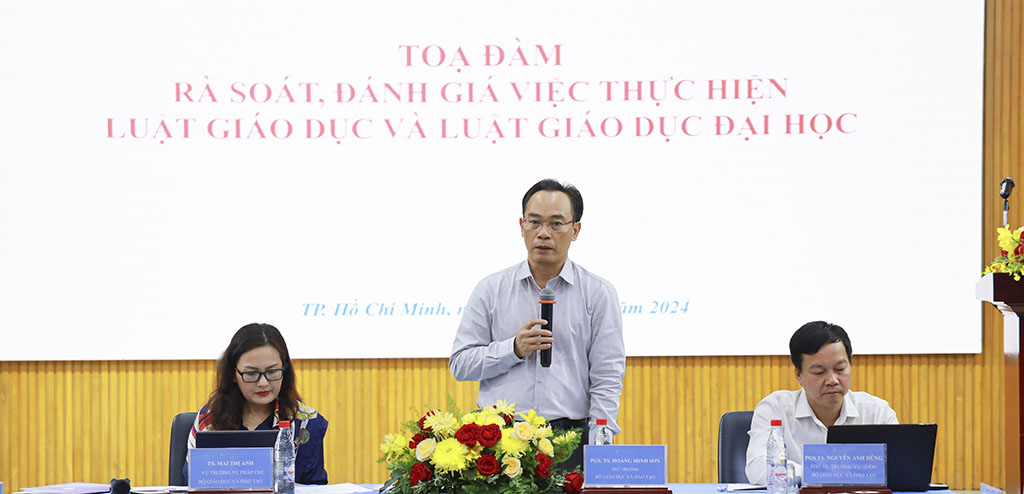
Deputy Minister of Education and Training Hoang Minh Son discussed at the seminar
B WORRYING WHY QUALITY CONTROL IS MANDATORY
Associate Professor, Dr. Tran Tien Khai, Head of the Department of Quality Assurance and Program Development, University of Economics , Ho Chi Minh City, proposed that there should be official regulations on the quality assurance council of university educational institutions. Because in practice, the success of quality assurance and quality accreditation of universities depends on the level of attention of the school's leaders and there is no uniformity among schools.
Associate Professor Dr. Khai said: "One issue that most schools are wondering about is why quality assessment is mandatory while almost no country in the world requires this? Of course, they have common national standards, similar to Circular 01 on education quality standards. Common standards must exist, but should they be mandatory or not?"
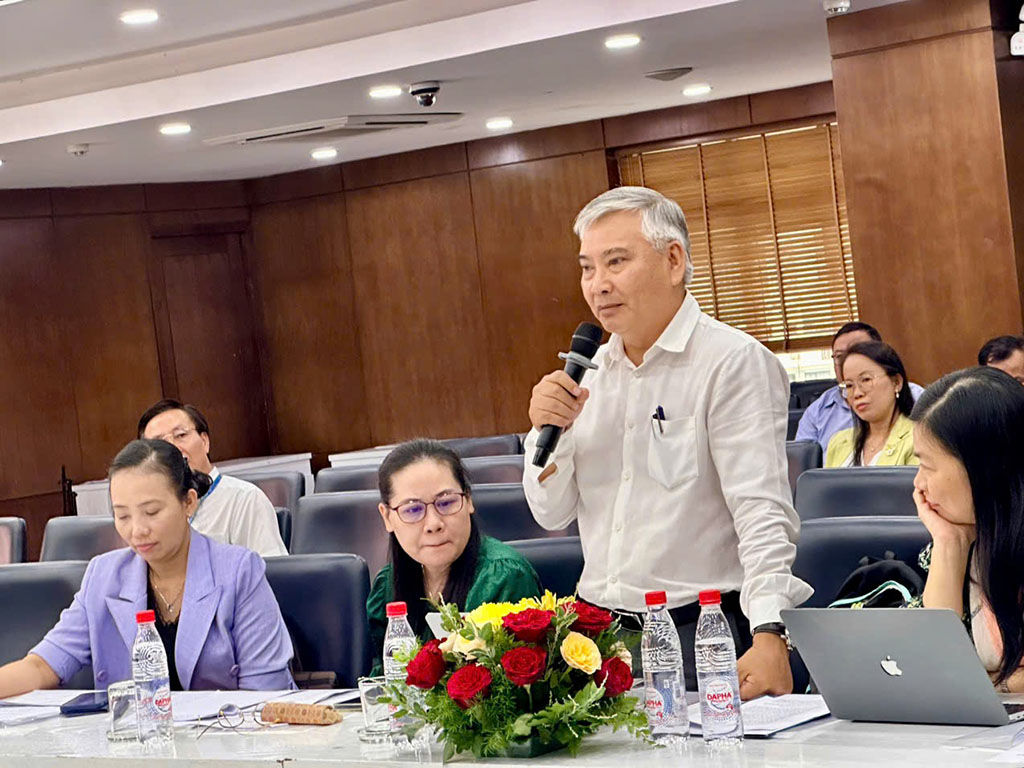
Associate Professor, Dr. Tran Tien Khai, Head of the Department of Quality Assurance and Program Development, Ho Chi Minh City University of Economics, raised some concerns about educational accreditation.
A representative of the University of Economics, Ho Chi Minh City, said that this may be necessary in the current period when it is necessary to strengthen the quality of Vietnam's university education system. "But do we need to detail it to the point that all training programs must be accredited? This causes a huge financial burden for the university system that not all schools can afford, affecting the progress of school quality accreditation in accordance with the Ministry's wishes and state regulations," Associate Professor, Dr. Khai raised the issue.
C RUNNING FOR INSPECTION AND THE FEAR OF QUALITY DECREASES
In his personal opinion, Mr. Khai believes that when a school has up to 50 accredited training programs, plus other accredited training facilities, the remaining programs should also be considered to have reached that level. This approach can reduce the burden on schools in accreditation activities. In addition, the validity period of the quality accreditation certificate is currently 5 years, but phase 2 should be extended to 7 years to reduce the pressure on schools. Otherwise, they will fall into a situation where they have just met the accreditation standards and are preparing for re-accreditation.
Regarding this issue, Dr. Thai Thi Tuyet Dung, Deputy Head of the Inspection and Legal Department of Ho Chi Minh City National University, said that accreditation is a good policy but needs a roadmap. Dr. Dung said: "Recently, I feel like every university is chasing accreditation. When there is too much pressure, the quality of accreditation may not be as trustworthy as before." According to Dr. Dung, the root of this problem is tuition fees. Schools that want accreditation to meet standards to autonomously determine tuition fees should chase accreditation.
According to current regulations, one of the conditions for universities to have autonomy is to publicly disclose quality assurance conditions, inspection results, employment rates of graduates and other information as prescribed by law.
When a university meets the quality accreditation standards for its university training programs, it is autonomous in opening master's degree training programs in appropriate fields; when it meets the quality accreditation standards for its university and master's degree training programs, it is autonomous in opening doctoral training programs in appropriate fields, except for fields in the fields of health, teacher training, national defense, and security.
Public universities are allowed to determine tuition fees for programs that meet quality accreditation standards based on economic and technical norms issued by the university, and to publicly explain to learners and society.
Information from the Department of Quality Management shows that compared to 2020, the number of training programs recognized for quality accreditation in 2022 and 2023 increased by 40-50%, with 2022 being very fast. By the end of July 2023, 399 training programs had met international accreditation standards out of a total of more than 1,200 accredited training programs.
WILL RESEARCH TO REDUCE THE LOAD
In response to the above concerns, Deputy Minister of Education and Training Hoang Minh Son said that it is necessary to carefully study these opinions because in reality, no country requires accreditation of all training programs. Moreover, even in the accreditation of educational institutions, many institutions have not been accredited, and the law does not clearly state sanctions.
Sharing about the upcoming approach, the Deputy Minister of Education and Training said that in the trend of delegating autonomy, competent educational institutions can be given the right to self-accredit the system. For example, a national university is a unit with the capacity to self-accredit, and can self-accredit its member units and training programs in the system. After that, an external accreditation organization will re-accredit the accreditation system of the national university, but at this step, only a sample of a number of programs will be taken. At that time, national universities, regional universities, and large universities can be assigned to do this... and it is also a way to reduce the workload.
The "very awkward" situation in teacher recruitment
Also at the seminar, many opinions were exchanged and discussed, assessing the shortcomings, limitations, difficulties and obstacles in the implementation of the Law on Education in the period of 2020 - 2024 and the Law on University Education in the period of 2019 - 2023. At the same time, solutions were proposed to remove difficulties, obstacles, shortcomings and limitations. Notably, the opinion of Mr. Nguyen Phuong Toan, Deputy Director of the Department of Education and Training of Tien Giang, related to the issue of teacher recruitment.
Mr. Nguyen Phuong Toan raised practical difficulties in implementing teacher qualification standards. According to the provisions of the Education Law, preschool teachers must graduate from a pedagogical college, and teachers teaching from primary school and above must graduate from a pedagogical university. However, in the law, there is an open clause in Clause 1, Article 72, in case the subject does not have enough teachers with a bachelor's degree in teacher training, they must have a bachelor's degree in a relevant major and a certificate of pedagogical training.
But Mr. Toan said that there was a problem in recruitment. According to regulations, students who want to study pedagogy must meet the minimum score set by the Ministry of Education and Training. However, those who fail this minimum score and study at private schools or bachelor's degrees and take additional pedagogical certificates are still required to be admitted.
The Deputy Director of the Tien Giang Department of Education and Training pointed out a "very difficult" case in this locality. He said: "A student graduated from a local university, majoring in Vietnamese language and culture. Initially, when the student applied for the position of teacher of literature, the Tien Giang Department of Education and Training did not accept him. However, when the parents complained, the Department had to ask for the opinion of the Ministry of Education and Training and the Ministry responded by giving the authority to the Department or the Department to coordinate with the training institution. We were required to make a document to the university and the school responded to the Department that the student majoring in Vietnamese language and culture had the qualifications, qualifications and capacity to participate in teaching literature at the high school level."
"This is very difficult for the Department, because the literature pedagogy sector not only trains Vietnamese literature but also foreign literature... But with the university's document, the Tien Giang Department of Education and Training is required to accept a student majoring in Vietnamese language and culture if that student is admitted," Mr. Toan emphasized.
Deputy Minister of Education and Training Hoang Minh Son acknowledged that this is a rather special case. Therefore, the issue of entrance threshold needs to be carefully studied to ensure fairness for learners.
Source: https://thanhnien.vn/kiem-dinh-chat-luong-giao-duc-nguy-co-ganh-nang-cua-truong-dh-185241110202950274.htm








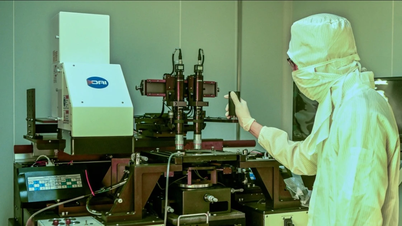

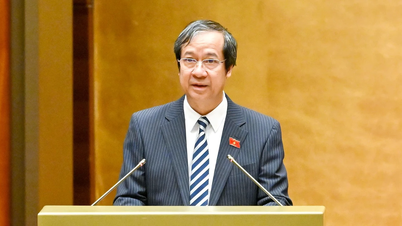
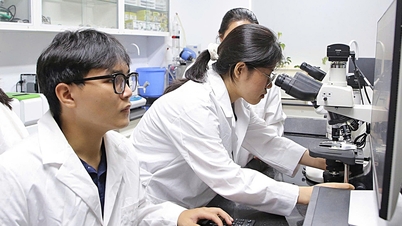

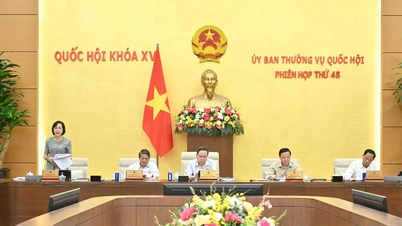


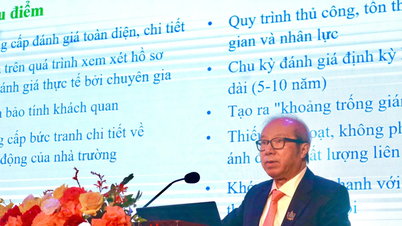
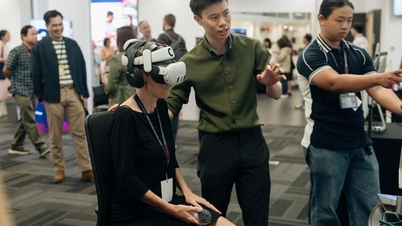

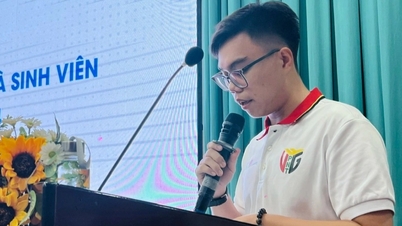

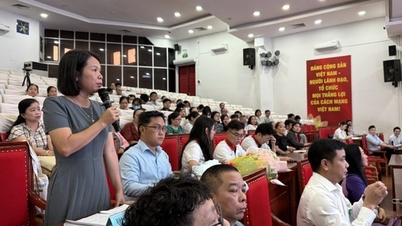
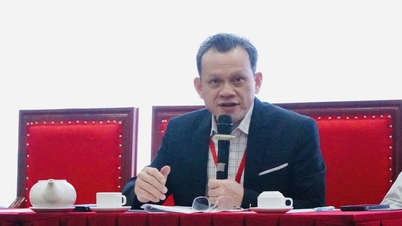
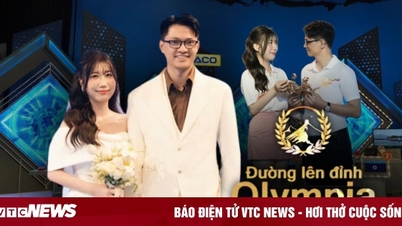

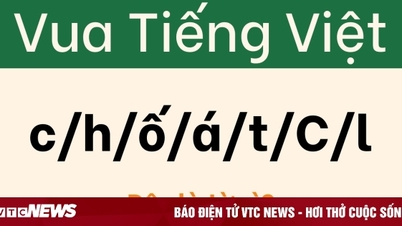




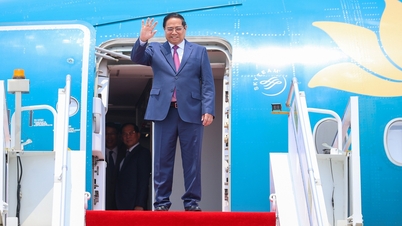
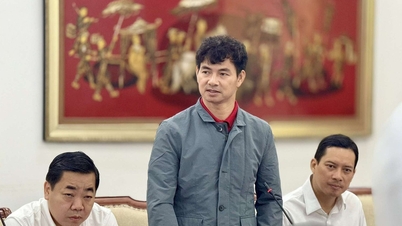
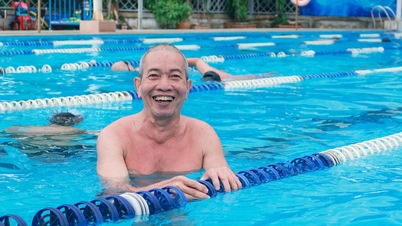
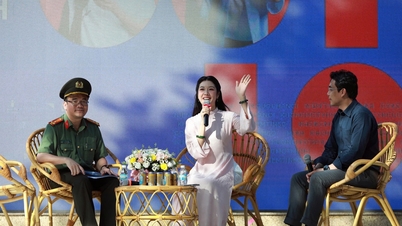
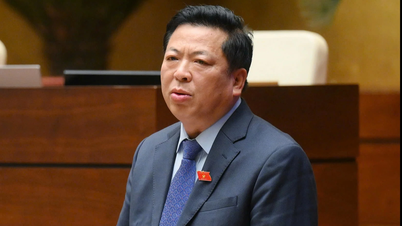






































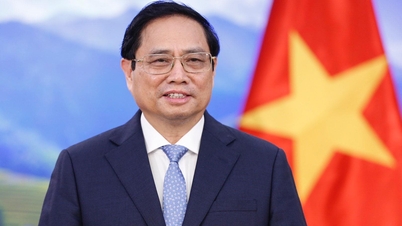

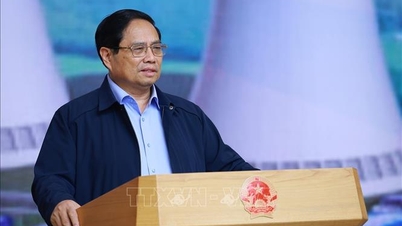






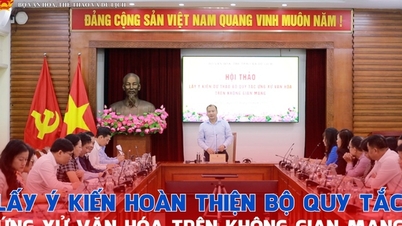
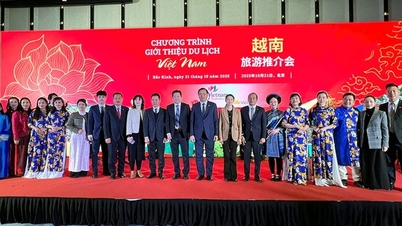
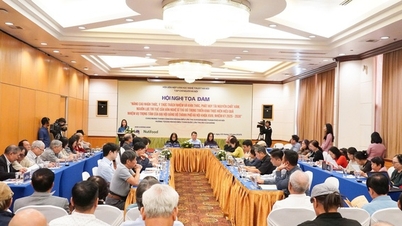
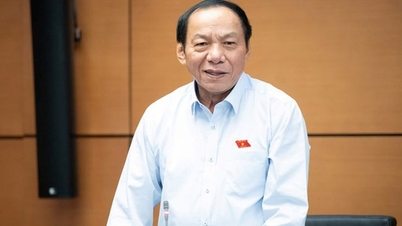
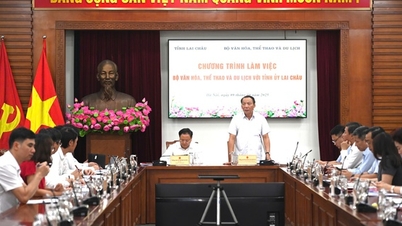
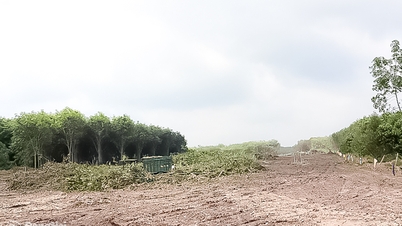

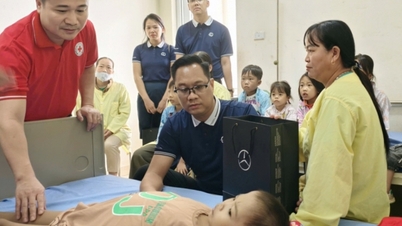

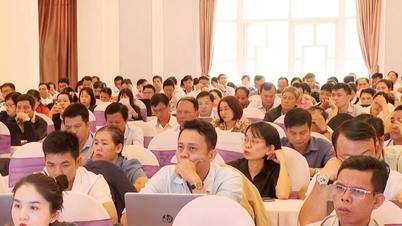

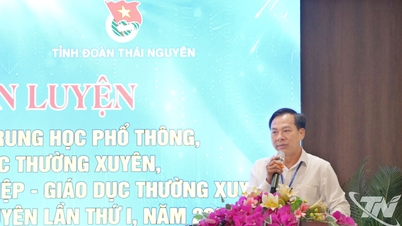


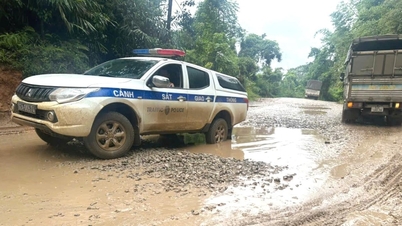














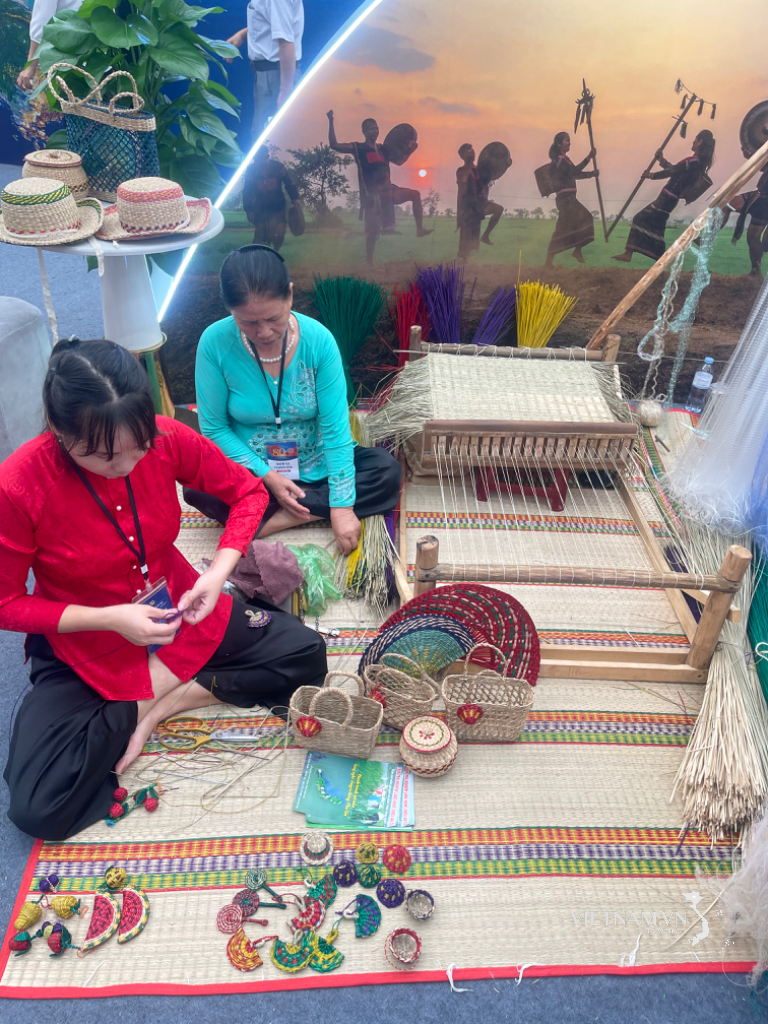
Comment (0)